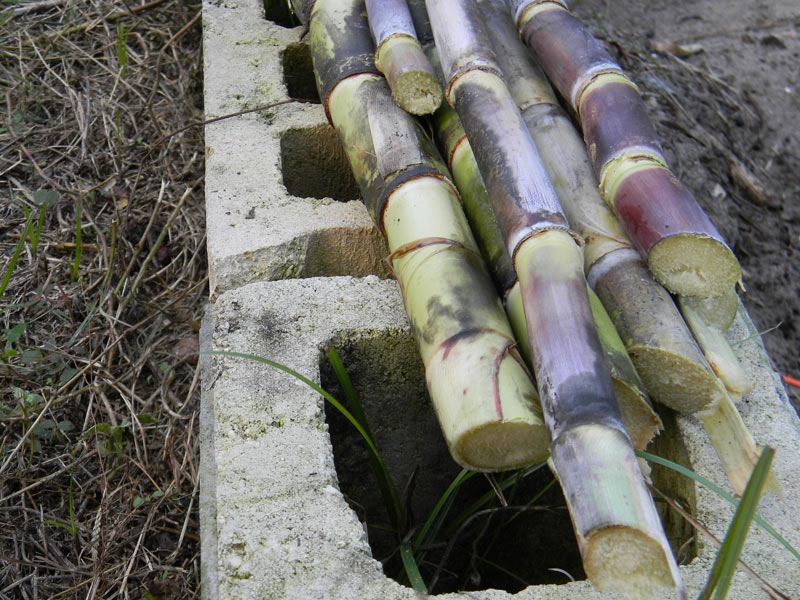Why Sugar and Cane Are Key Ingredients in Many Popular Beverages
Why Sugar and Cane Are Key Ingredients in Many Popular Beverages
Blog Article
Why Cane Sugar Handling Chemicals Are Vital for Modern Sugar Refining
The duty of walking stick sugar handling chemicals in modern sugar refining can not be overstated, as they are indispensable to enhancing both the performance of extraction and the total high quality of the end product. Representatives such as phosphoric acid and certain flocculants are employed to remove pollutants, resulting in sugar that not only fulfills customer assumptions but additionally follows industry criteria. However, the implications of these chemicals expand past quality, discussing market dynamics and environmental considerations. This elevates vital inquiries about the sustainability of such techniques and their impact on the future of sugar manufacturing.
Role of Handling Chemicals
The efficacy of walking cane sugar handling hinges significantly on the critical application of handling chemicals. These chemicals play a pivotal duty in boosting the effectiveness and quality of sugar extraction and refining. From the preliminary stages of juice removal to the final filtration steps, processing chemicals assist in different critical operations.
In the removal stage, chemicals such as phosphoric acid and calcium hydroxide are used to maximize the information procedure, helping to remove pollutants and put on hold solids from the cane juice. This not just improves the return however also makes certain the quality of the last product. Furthermore, representatives like flocculants help in the quick settling of contaminations, therefore improving the total process.
As the handling developments, chemicals are utilized in decolorization and condensation stages. Activated carbon and ion exchange materials serve to remove shade and smell, guaranteeing that the refined sugar fulfills customer high quality requirements. Ultimately, the role of handling chemicals extends beyond operational effectiveness; they significantly affect the sensory qualities of the end product, adding to market competitiveness. Hence, the precise choice and application of these chemicals are crucial for achieving ideal results in cane sugar handling.
Secret Kinds Of Chemicals
Walking stick sugar handling counts on a selection of crucial chemicals that facilitate each stage of manufacturing. These chemicals play vital roles in making clear, lightening, and cleansing the sugar drawn out from cane.
One primary group of chemicals includes flocculants, such as polyacrylamide, which help in the explanation process by promoting the aggregation and settling of impurities. In addition, calcium hydroxide is frequently employed to counteract acidity and assist in the elimination of non-sugar components.
Lightening agents, such as triggered carbon and sulfur dioxide, are used to decolorize the syrup, causing a more clear end product. These chemicals help get rid of shade substances that might influence the sugar's look and bankability.
Moreover, phosphoric acid offers as a pH regulatory authority during the handling phases, making certain ideal problems for the enzymatic activities associated with sugar extraction and filtration.
Other crucial agents include edta (ethylenediaminetetraacetic acid), which chelates steel ions that might catalyze unwanted reactions, and salt hydroxide, which assists in pH control throughout the refining process. Collectively, these chemicals boost efficiency and ensure a top notch walking cane sugar product.
Advantages for Sugar Quality
Typically ignored, making use of details processing chemicals significantly boosts the general high quality of cane sugar. These chemicals play a critical role in refining processes, ensuring that the end product fulfills stringent sector criteria for purity and taste.

Furthermore, processing chemicals aid in attaining a regular granulation and structure, which are essential for consumer approval. By regulating the formation process, these chemicals make sure that the sugar crystals form consistently, resulting in a more attractive item that liquifies well in numerous directory applications.
Additionally, making use of these chemicals can boost the service life of walking stick sugar by lessening dampness absorption and microbial growth. Generally, the calculated application of handling chemicals is essential for delivering premium walking stick sugar that meets consumer assumptions and industry needs.
Ecological Effect Factors To Consider

Moreover, the energy-intensive nature of sugar refining, intensified by chemical use, often leads to raised carbon exhausts. This contributes to climate change and increases concerns regarding the sustainability of present refining practices. Furthermore, the sourcing of these chemicals may involve practices that intimidate biodiversity, such as monoculture farming, which reduces the durability of farming ecosystems.

To minimize these impacts, sugar refiners are increasingly exploring lasting alternatives and adopting finest techniques that minimize chemical usage. Applying rigorous environmental administration systems can help guarantee that the refining process aligns with environmental standards and promotes biodiversity. Eventually, a well balanced technique that prioritizes both sugar quality and ecological stewardship is vital for the lasting feasibility of the sugar market.
Future Patterns in Refining
As the sugar market faces the ecological difficulties associated with conventional refining methods, innovative techniques are emerging to boost both effectiveness and sustainability. One significant trend is the fostering of eco-friendly chemistry concepts, which focus on making use of safe, biodegradable handling chemicals. This change not just minimizes environmental influence however also addresses customer need for cleaner production approaches.
Another encouraging development is the execution of advanced purification innovations, such as membrane separation and adsorption processes. These methods improve the clearness and quality of the sugar while decreasing the volume of wastewater created during refining. Additionally, the combination of electronic innovations, consisting of IoT and AI, is changing operational efficiency by making it possible for real-time tracking and anticipating upkeep, thus lessening source waste.
Furthermore, making use of byproducts from sugar refining, such as bagasse and molasses, is getting grip. These materials can be converted into biofuels or value-added products, adding to a round economy within the industry. Collectively, these trends indicate a change this contact form in the direction of more lasting techniques that not only boost functional performance however likewise line up with global sustainability goals, making certain the future feasibility of sugar refining.
Final Thought
Walking site web cane sugar handling chemicals are important in modern-day sugar refining, significantly enhancing the performance and quality of sugar removal. The strategic use these chemicals not only boosts the purity and taste of the end product but also guarantees regular crystallization and structure. As the market significantly focuses on sustainability, the fostering of environmentally-friendly processing agents is most likely to form future fads in refining, inevitably bring about better products and prolonged rack life for customers.

Ultimately, a well balanced approach that focuses on both sugar quality and ecological stewardship is important for the long-term stability of the sugar industry.
Cane sugar processing chemicals are essential in modern-day sugar refining, significantly improving the efficiency and top quality of sugar removal.
Report this page